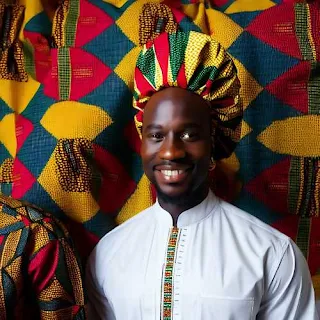Eleven African Capitals with Long Meaningful Names
Explore 11 long-named African capitals, their significance, history, and pronunciation.
Africa has eleven countries with capital cities with some of the longest names, consisting of nine or more letters. We will explore how to pronounce each African capital city name, the significance of these names, their historical background, and the distinctive features of each capital city.
Eleven African capitals with long meaningful names.
Ouagadougou, Burkina Faso
How to pronounce: Ouagadougou - Wah-gah-doo-goo
Importance: Ouagadougou is the capital and largest city of Burkina Faso. It serves as the country's political, economic, and cultural center.
Naming History: Ouagadougou is of Mossi origin and translates to the place of the big people. It reflects the city's historical role as a power center for the Mossi people.
Most Known For: Historically, Ouagadougou was a vital center of the Mossi Empire, known for its regional political and economic influence. It served as the royal capital of the Mossi people and played a role in the trans-Saharan trade routes. The city is known for its vibrant music and dance scene and is a hub for African cinema, hosting the biennial Panafrican Film and Television Festival of Ouagadougou (FESPACO).
Bujumbura, Burundi
How to pronounce: Bujumbura - Boo-jum-boo-rah
Importance: Bujumbura is the capital and largest city of Burundi. It serves as the country's economic and political center.
Naming History: Bujumbura's name is derived from the Kirundi word buja, meaning head, and mbura, meaning rock, referring to the town's location near a headland on Lake Tanganyika.
Most Known For: Bujumbura was historically a part of the Kingdom of Burundi and gained prominence as a regional trading hub, particularly for goods like ivory and copper. It has played a central role in Burundi's history and politics.
Addis Ababa, Ethiopia
How to pronounce: Addis Ababa - Ah-dees Ah-bah-bah
Importance: Addis Ababa is the capital and largest city of Ethiopia. It is the country's political, cultural, and economic heart and serves as the headquarters of the African Union.
Naming History: Addis Ababa means New Flower in Amharic, signifying the city's new role as Ethiopia's capital during the late 19th century.
Most Known For: Addis Ababa holds historical significance as the capital of Ethiopia since the late 19th century. It became a symbol of resistance against colonialism when Ethiopia successfully repelled Italian forces during the First Italo-Ethiopian War in 1896.
Brazzaville, Republic of the Congo
How to pronounce: Brazzaville - Braz-ah-veel
Importance: Brazzaville is the capital and largest city of the Republic of the Congo, located across the Congo River from Kinshasa, the capital of the Democratic Republic of the Congo.
Naming History: Named after the French explorer Pierre Savorgnan de Brazza, who explored and established a French protectorate in the region in the 19th century.
Most Known For: Historically, Brazzaville developed as a French colonial administrative and trading center in Central Africa. It was pivotal in the region's colonial history and was named after the French explorer Pierre Savorgnan de Brazza. Brazzaville is known for its French influence, vibrant music, and being an administrative and cultural center in the region.
Yamoussoukro, Côte d'Ivoire
How to pronounce: Yamoussoukro - Yah-moo-soo-kro
Importance: Yamoussoukro is the political capital of Côte d'Ivoire, serving as the country's administrative center.
Naming History: The name Yamoussoukro is derived from the Baoule language and refers to the town's founder, Queen Yamousso, a legendary leader.
Most Known For: Yamoussoukro became historically significant as the birthplace of Côte d'Ivoire's first president, Félix Houphouët-Boigny, and later served as the political capital of the country when it moved from Abidjan. Yamoussoukro is most known for the Basilica of Our Lady of Peace, one of the largest Christian churches in the world.
Antananarivo, Madagascar
How to pronounce: Antananarivo - Ahn-tah-nah-ree-voo
Importance: Antananarivo is the capital and largest city of Madagascar, serving as the country's political and economic center.
Naming History: The city's name means City of the Thousand and likely refers to the city's historic status as the capital of the Merina Kingdom.
Most Known For: Historically, Antananarivo was the center of power for the Merina Kingdom. It played a crucial role in Madagascar's unification and resisted European colonization during the 19th century. Antananarivo is known for its unique architecture, vibrant markets, and role as a cultural and historical hub in Madagascar.
Nouakchott, Mauritania
How to pronounce: Nouakchott - Nwahk-shot
Importance: Nouakchott is Mauritania's capital and largest city and is the country's political and administrative center.
Naming History: The name Nouakchott comes from the Arabic نواكشوط and means place of the winds, highlighting its coastal location on the Atlantic Ocean.
Most Known For: In 1957, Mauritania achieved independence from French colonial rule. With independence came the need to establish a government to govern the newly formed nation. The government chose Nouakchott as the new capital. The selection of Nouakchott was symbolic because it was strategically located between two significant regions within the country. Nouakchott was situated geographically in an almost equidistant way between two key regions. On one side, you had the Senegal River Valley, primarily populated by black farmers. On the other side was Adrar, which was a Maure stronghold. The Maures were a diverse ethnic group, and their presence was influential in the country.
Mogadishu, Somalia
How to pronounce: Mogadishu - Mo-gah-dee-shoo
Importance: Mogadishu is Somalia's capital and largest city and is the country's political, economic, and cultural center.
Naming History: The origin of the name is uncertain, but it may be related to the Arabic word Maq'ad Shah, which means Seat of the Shah.
Most Known For: Mogadishu is historically a significant trading and cultural hub in the Indian Ocean region. It was part of the Swahili Coast trading network. Mogadishu is also historically infamous for its turbulent modern history marked by prolonged conflict, including the Somali Civil War that began in the late 20th century. The U.S. involvement in the Battle of Mogadishu was under the operation known as Operation Gothic Serpent. It was intended to capture a warlord named Mohamed Farrah Aidid. The battle, which occurred on October 3-4, 1993, resulted in intense fighting and significant casualties for U.S. forces and Somali militia fighters. Tragically, two U.S. Black Hawk helicopters were shot down during the battle. The events of the Battle of Mogadishu were depicted in the book Black Hawk Down by Mark Bowden and later in a film of the same name directed by Ridley Scott.
Bloemfontein, South Africa
How to pronounce: Bloemfontein - Bloem-fon-teen
Importance: Bloemfontein is one of South Africa's three capital cities, serving as the judicial capital.
Naming History: Bloemfontein is Dutch for Fountain of Flowers and reflects the city's fertile surroundings.
Most Known For: Bloemfontein played a historical role as the judicial capital during the British colonial period. It has been a center for legal and judicial affairs in South Africa, contributing to its legal history. Bloemfontein is also known for its educational institutions and as the City of Roses due to its annual rose festival.
Port Louis, Mauritius
How to pronounce: Port Louis - Port Loo-ee
Importance: Port Louis is the capital and largest city of Mauritius, serving as the country's economic, cultural, and administrative hub.
Naming History: Port Louis was a French colonial settlement after King Louis XV of France.
Most Known For: Historically, Port Louis was a strategic trading post and harbor for Dutch, French, and British colonial powers. It played a crucial role in the development of the sugar industry and served as a hub for maritime trade. Port Louis is known for its diverse culture historical sites, and as a major port city in the Indian Ocean.
Libreville, Gabon
How to pronounce: Libreville - Lee-breh-veel
Importance: Libreville is the capital and largest city of Gabon. It holds great political, economic, and cultural significance within the country. It serves as the administrative and political center, housing government institutions and foreign embassies.
Naming History: The name Libreville is of French origin and translates to Free Town. It was named after the French explorer Pierre Savorgnan de Brazza, who explored and established a French protectorate in the region during the late 19th century. It was given in the mid-19th century when the city was established as a settlement for freed slaves and free Africans. The French government promoted the idea of a colony where slaves could find freedom and opportunity.
Most Known For: Libreville is historically known for its role in the colonization and administration of French Equatorial Africa. Libreville is currently an industrial and educational hub in Gabon, home to Omar Bongo University. Libreville, the capital of Gabon, is home to the National Library of Gabon. The National Library is a repository of literature, documents, and cultural resources, making it an important institution for education and research in the country.








